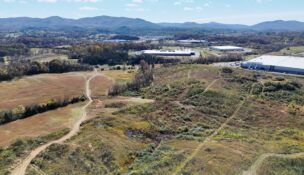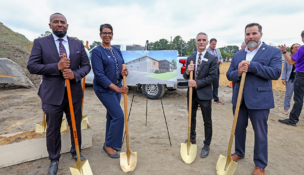Tobacco Commission gets new leader and new name
The Virginia Tobacco Commission, which provides formerly tobacco-dependent communities with money to promote economic development, has a leader and a new name.
Gov. Terry McAuliffe’s office announced Friday that Evan Feinman, most recently Virginia’s deputy secretary of natural resources, has been appointed executive director of the commission, which has been renamed the Virginia Tobacco Region Revitalization Commission. (Before, it was formally known as the Tobacco Indemnification and Community Revitalization Commission).
Feinman succeeds Timothy S. Pfohl, who had been serving as the commission’s interim executive director.
Before serving as deputy secretary of natural resources, Feinman served as deputy policy director for McAuliffe’s transition team after his election. Feinman has worked on multiple campaigns at the state and federal level and at the Commonwealth Institute, a budget and fiscal policy think tank in Richmond.
Feinman joined the McAuliffe campaign as policy director in late 2012. He received his bachelor’s degree from the University of Virginia, spent two years on a fellowship with the Public Interest Research Groups working on energy and transportation policy, and then attended law school at Washington and Lee University.
The new name and leader aren’t the only changes to the commission. Legislation, signed this year by McAuliffe, aims to revamp the organization. The new legislation, House Bill 2330 and Senate Bill 1440, do the following:
• Establishes the Tobacco Region Revolving Loan Fund to make loans to local governments to finance the cost of a project.
• Requires a dollar-for-dollar match for all economic development grant awards (no match was required before).
• Requires a biennial comprehensive strategic plan process.
• Establishes a manager to determine financial viability and feasibility for distributing of money from the commission's fund.
• Establishes an online database of all commission awards, with project goals.
• Reduces the number of commission members from 31 to 28 and requires that at least 13 members have expertise in business, economic development, investment banking, finance or education.


















